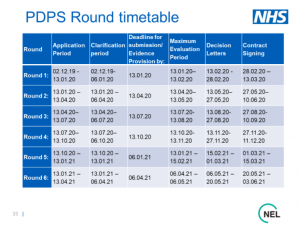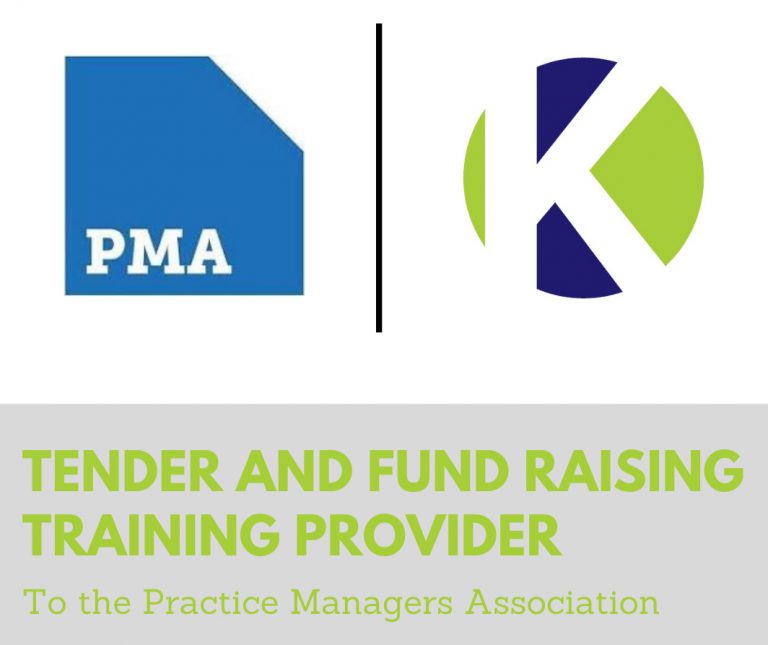As the PDPS Contract becomes more prevalent, it’s important to be aware of important information.
We recently attended NHS England’s market engagement event in Leeds; the event provided updated information about the contract. This article, therefore, will act as a commentary following on from on our first PDPS blog post.
This article is aimed at those who intend to tender for NHS APMS GP contracts in the future.
Aims of the day
Mark Smith, NHS England – Assistant Head of Primary Care Commissioning, opened and chaired the event. Making it clear aims of the day were to run a split AM/PM session for Commissioners/Providers respectively.
With the contract notice going live on the 1st December and the PDPS going live in Jan/Feb 2020, it was clear that unless there was large Provider take-up, Commissioners without a mandate would not use the framework and would still proceed with the current procurement procedure.
Why Is the PDPS Contract Needed?
The main reasoning behind the introduction to this framework is to create commissioner and provider efficiencies. In turn, this will enable APMS contracts to be commissioned swiftly so that the service disruption is minimised, and patient care can continue to be delivered appropriately.
At the moment across all areas, commissioners are finding less interest from providers across the country to bid for APMS contracts. APMS procurements take around 6 months, and there is no guarantee that they will be successful. The past two years have shown a 10% failure rate in 2017/18 and an 8% failure rate in 2018/19.
Potential Issues with the Contract
One of the main foreseeable issues with this contract is the lack of notice and awareness that GP providers have of it. The NHSE attempts to address this by centralising and standardising the contract channel. However, by locking out non-framework providers, there is a danger that this may have the opposite effect.
It has been evident from our conversations with GPs at the recent Best Practice exhibition, and from the worryingly low numbers in the room that GP providers are unaware of this critical change to the way their contracts may be commissioned.
A big question is how are GPs supposed to know about the framework? Other than the usual contract notices, the answer is given that the message was pushed through local CCGs, who may or may not be passing on the message. It appeared those in attendance had registered either by chance or following their own contract monitoring activities.
How GP’s can be aware of the PDPS Contract and Do You Need to Apply?
The portal to be used for the procurement will be EU supply: https://uk.eu-supply.com/. This will host FAQs and any further updates ahead of hosting the actual PDPS tender process.
The initially proposed 6 rounds of the framework will have around 5-month lead times from entry to award. Please see the timescales captured below:

To Re-Iterate, only those Providers on the PDPS will be invited to tender for any contracts ‘called-off’ via the framework. Therefore, it is highly likely that unless a Provider applies for the PDPS six months in advance of a call-off being made, that they will miss the opportunity to bid.
Market Response for the PDPS Contract
To mitigate the potential impact and reduction in market response, attendees suggested:
- NHSE should reconsider the length of the rounds, shorten the timeframe and make them monthly.
- NHSE should publish all APMS contract expiry dates. Whether they will definitely be recommissioned or not, providers could make a decision themselves whether to or not, invest the time to get onto the framework, and do any initial research and model development in advance of the ‘call-off’
- NHSE supports workshops where practice representatives come in and are supported to complete the PDPS application.
- At the very least, they need to find a way to make this public knowledge to all GPs. Some form of mandated communication, explaining the very limited time commitment and simplicity of the application, should make it an easy decision for GPs to fill out the application and ensure they are not locked out for the next 4 years!
Digital First- A Risk to Local Providers?
A matter raised within the meeting was that there may be a potential risk to local provision. This is due to the fact that there appears to be an opening to digital-first delivery models. Providers can be accredited to all regions across the country. Some people may point to this as the reason why the fundamental procurement shift has been so under-publicised.
Contact Us Today
To enquire more about how to apply for this contract, contact us today on 0330 133 1041 or info@klowconsulting.com.




